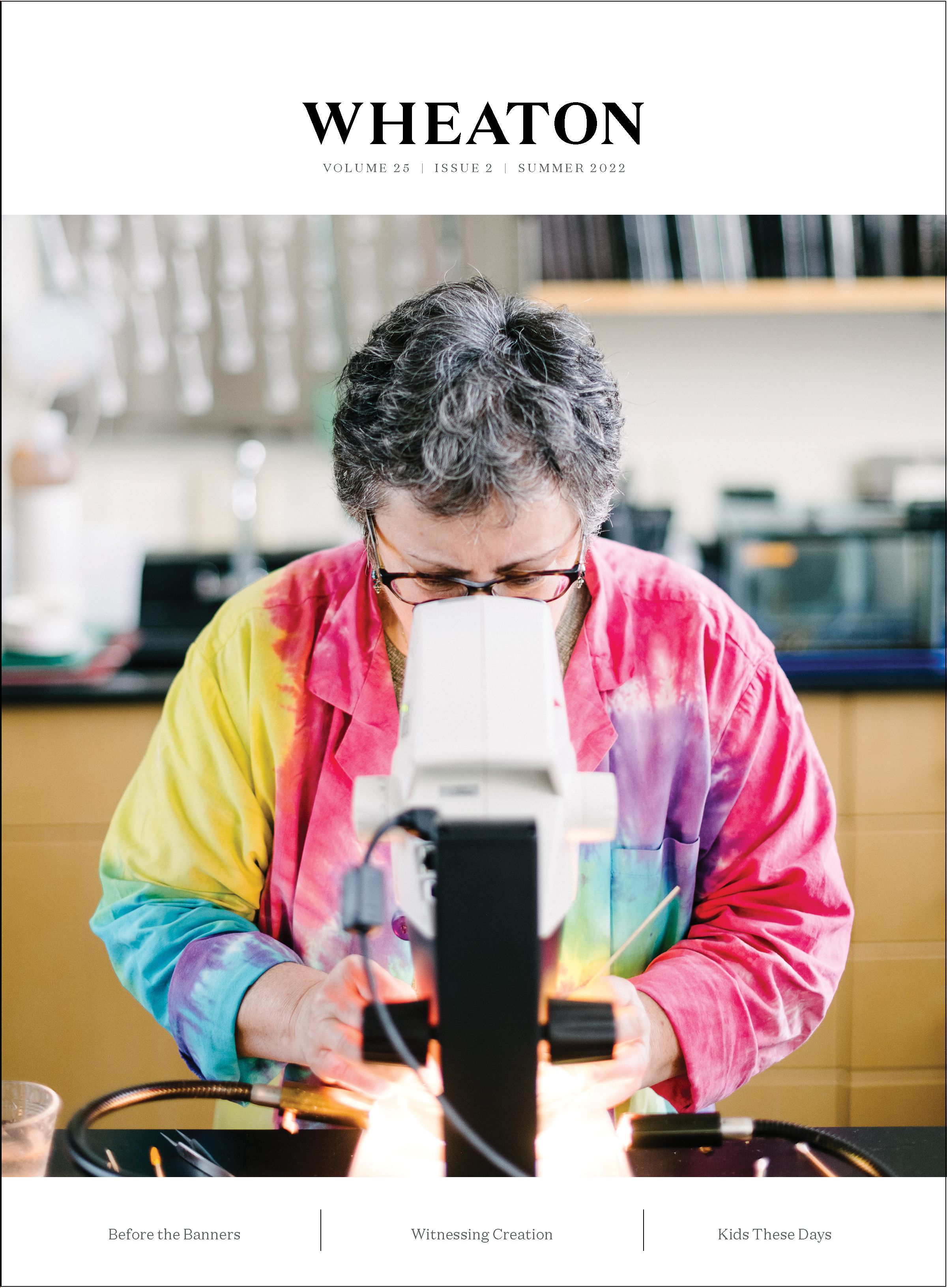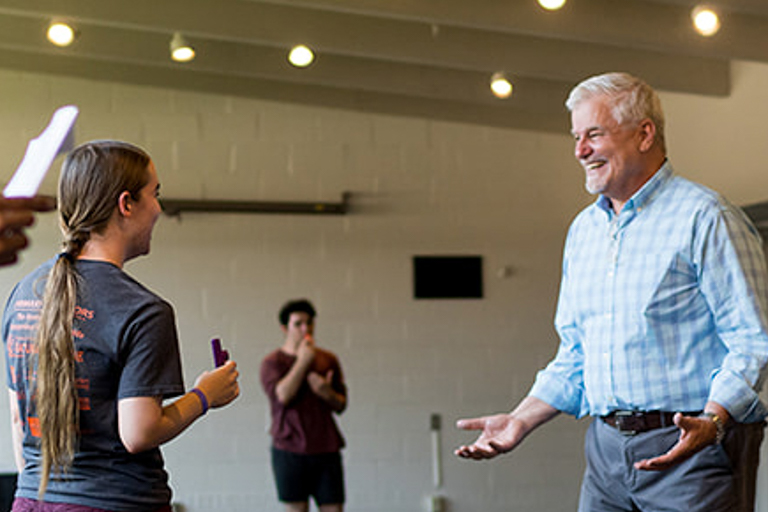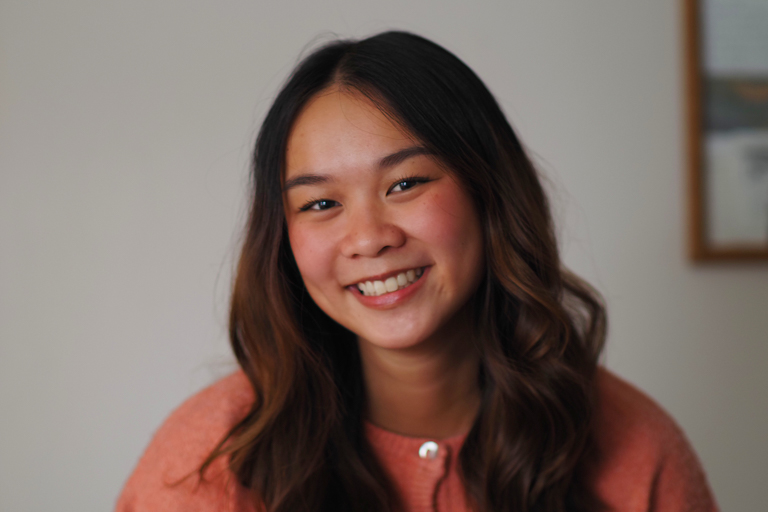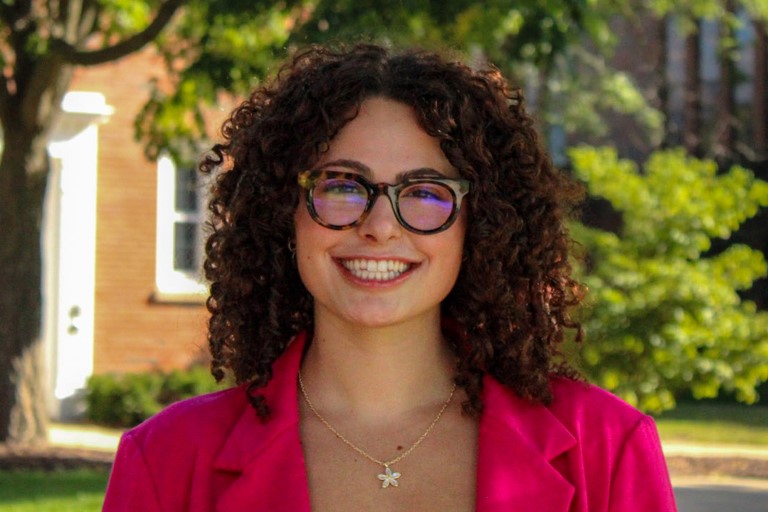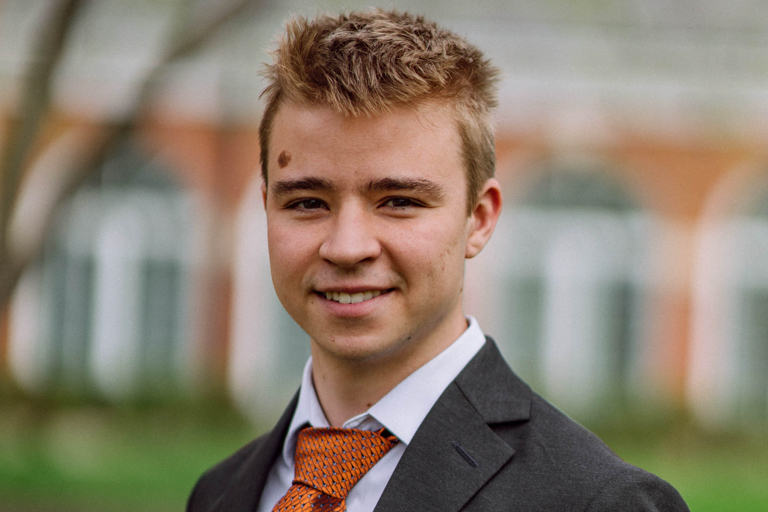Bringing Hope to Healthcare in Georgia
Whether on the clock in the oncology unit or volunteering with community clinics, Joshua Clark ’19 is finding ways to integrate gospel mission with quality healthcare in one of the most diverse square miles in the United States.
Words: Ciera Horton McElroy ’17
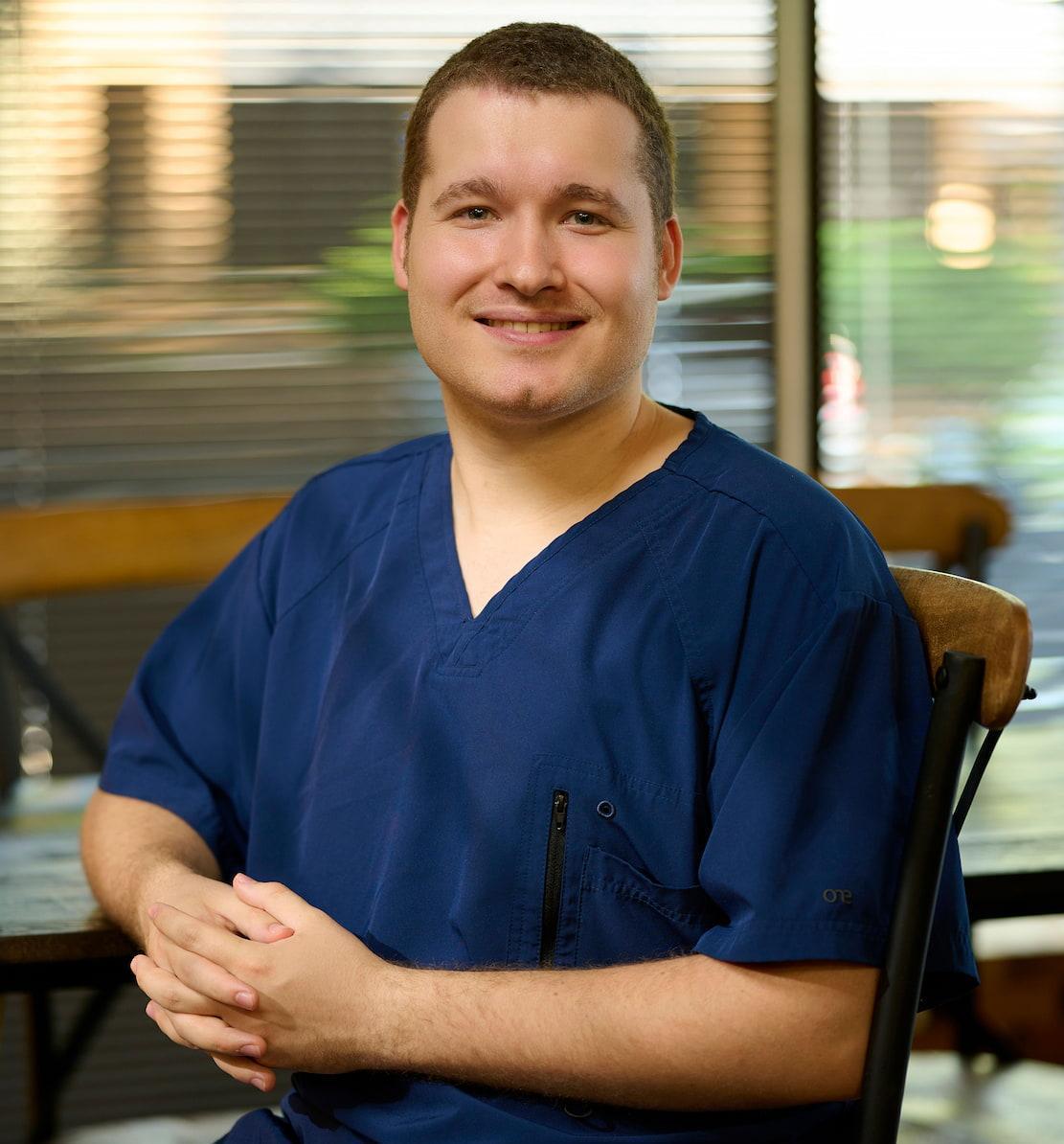
“A lot of our patients need spiritual care, too, and they’re already looking for that. The work we do very much provides an avenue to share my faith and talk about the gospel.”
Joshua Clark ’19 is an oncology and medical-surgical nurse at Emory Decatur Hospital in Atlanta. Yet despite his packed work schedule, this busy healthcare worker spends what free time he does have volunteering with Ethnē Health, a community clinic in Clarkston, Georgia.
“They were new arrivals from Afghanistan,” Clark recalled from one particularly striking patient encounter. “We were their first healthcare experience in the U.S. Without medical treatment, they would have died.”
Clarkston has been called the “Ellis Island of the South” because of its dense refugee and immigrant population. In the 1990s, the U.S. government designated this small town outside Atlanta as a refugee resettlement area. Today, it’s estimated that over half of the town’s population are first-generation residents. The refugee population is so dense—over 60 languages in 1.1 square miles, which averages a new language every 100 square feet—that many missionaries-in-training come to the small town to prepare for overseas work.
For Clark, this town is a healthcare mission field in and of itself. As he cares for immigrant patients from Nepal, Bhutan, Ethiopia, Burma, and many other countries, Clark comes into direct contact with many of the medical barriers these people face upon entering the U.S. He and his colleagues interact with many new arrivals who don’t know anything about the country’s healthcare system and barely speak the language, and it’s the clinic’s goal to help make medical information more accessible.
“A lot of our patients need spiritual care, too, and they’re already looking for that,” Clark pointed out. “The work we do very much provides an avenue to share my faith and talk about the gospel.”
Clark discovered his passion for healthcare while still in high school, attending a medical summer camp at the local Seventh Day Adventist hospital.
“The first thing they did at the start of the camps was to drop a cow heart, lungs, and trachea in front of all the students,” Clark said. “They were very big on believing that our bodies are beautiful, created by God. Organs aren’t anything to be grossed out about because they’re part of our bodies.”
Clark found himself deeply moved by the staff’s integration of faith, physiology, and practice. “This is what I wanted to do,” he said. “I’ve stuck with it ever since.”
Clark came into Wheaton thinking he wanted to pursue pathology, the study of diseases. But a pathologist would spend most of their time in a lab, and throughout the course of his Wheaton years, Clark found that he much preferred the patient-facing side of healthcare. He wanted a role that was people-oriented. While at Wheaton, he started volunteering with Bolingbrook Christian Health Center, which was his first encounter with a primarily immigrant patient population.
“It was really there, with Wheaton alumna Sue Davis, where I really fell in love with primary care,” said Clark, who ultimately landed a seat on the clinic’s board of directors. After graduating from Wheaton with a degree in biology, Clark completed a brief stint as an ER tech at Elmhurst Memorial Hospital before moving on to nursing school at Emory University.
“That year I had some great experiences with some really good people, but I really wanted to be able to develop relationships with my patients over more than just an hour,” said Clark. “In my current job, I can get to know patients over the course of months and form a bond with them.”
This bond can be very important for establishing patient trust. Sometimes, Clark’s separate worlds—the hospital and the clinic—collide.
“Occasionally I get to see people that are discharged from the hospital at the clinic or vice versa,” said Clark. “I can be a familiar face. It’s a very disorienting experience to be in a hospital where no one speaks your language, so I can help orient them. Then on the reverse side, it’s always nice to see when I discharge patients that they’re taken care of by the doctors at the clinic.”
Although Clark didn’t come to Wheaton thinking he’d be a nurse, he’s grateful for the open doors that have let him practice patient care in one of the most diverse square miles in America.
